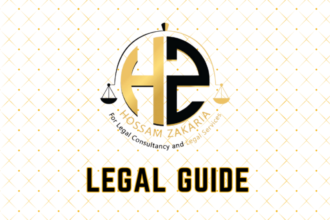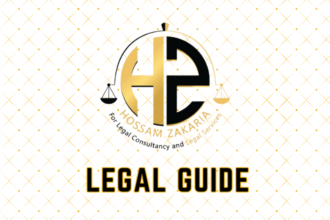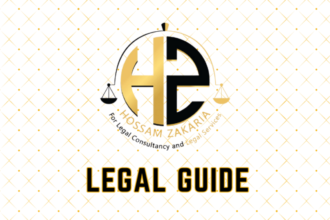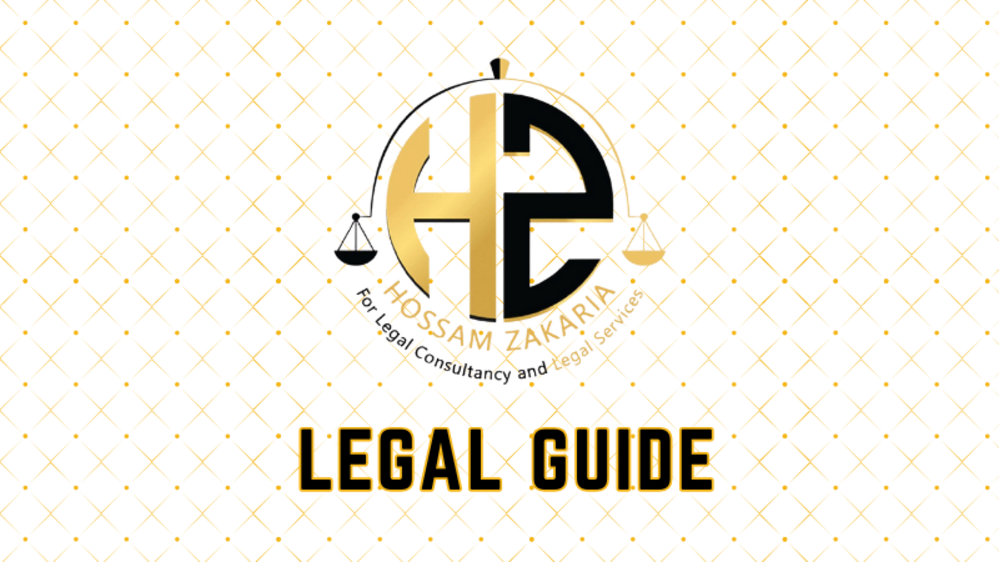Introduction
In recent years, the Gulf region’s aviation sector has witnessed significant transformation, propelled by increasing cross-border investment and regulatory harmonization. For UAE-based aviation stakeholders, financiers, and legal professionals, understanding the legal landscape of aircraft mortgages and security interests under Qatari law has never been more critical—especially with the region aligning ever more closely with international standards embodied by instruments like the Cape Town Convention. This article provides a comprehensive consultancy-grade analysis of Qatar’s legal framework for aviation finance, with a particular lens on risks, compliance, and opportunities for UAE businesses. Recent legal updates, growing bilateral ties, and regulatory convergence make this a timely and strategic area of focus for entities engaged in aviation leasing, lending, or fleet management in the GCC.
Qatar’s dynamic legal regime, combined with ongoing reforms in the UAE, presents unique advantages and challenges. UAE stakeholders must navigate differences in registration processes, enforcement of security interests, and cross-border recognition of aircraft mortgages to ensure both compliance and optimal asset protection. This guide demystifies the regulatory environment, offering actionable insights grounded in official sources such as the Qatari Civil Aviation Authority guidelines, the Qatar Central Bank framework, and parallel developments under UAE Federal Laws. Whether you are an executive, legal counsel, asset manager, or aviation financier, the practical guidance offered here will equip you to protect your interests and seize new opportunities confidently.
Table of Contents
- Qatar’s Legal Framework for Aircraft Mortgages and Security Interests
- Why Qatar’s Aviation Law Matters for UAE Stakeholders
- Key Provisions and Recent Legal Updates
- Registration and Enforcement Mechanisms
- Comparative Analysis: Qatar versus UAE
- Case Studies and Hypothetical Scenarios
- Risks, Non-Compliance, and Mitigation Strategies
- Practical Guidance for UAE Business and Legal Teams
- Looking Ahead: Legal Harmonization and Strategic Outlook
- Conclusion and Best Practices
Qatar’s Legal Framework for Aircraft Mortgages and Security Interests
Foundations of Qatari Aviation Law
Qatar’s legal regime for aircraft mortgages is shaped by a blend of national legislation—primarily Law No. 15 of 2002 (Civil Aviation Law)—and its ratification of key international treaties, notably the Cape Town Convention and its Aircraft Protocol (accession in 2020). The Qatar Civil Aviation Authority (QCAA) and Qatar Central Bank act as the principal regulatory bodies overseeing registration, enforcement, and compliance regarding security interests in aircraft and related assets.
Core Statutory Provisions
Law No. 15 of 2002 outlines the requirements for creating, registering, and enforcing security interests over aircraft. Key aspects include:
- Mandatory registration of any mortgage or charge over a Qatari-registered aircraft with the QCAA.
- Public notice requirement: Security interests are not enforceable against third parties unless duly registered.
- Procedures for enforcement in case of debtor default, including judicial sale and priority rules.
- Recognition of rights created abroad, subject to compliance with local law and public order.
In parallel, Qatar’s accreditation to the Cape Town Convention complements the civil aviation law, ensuring recognition of international interests, harmonized priority mechanisms, and streamlined enforcement protocols.
Why Qatar’s Aviation Law Matters for UAE Stakeholders
Cross-Border Investment and Asset Mobility
The UAE has emerged as a leading hub for aviation finance, asset leasing, and MRO operations, with entities frequently investing in or leasing aircraft across the GCC. The convergence between Qatari and UAE aviation laws—especially regarding the adoption of Cape Town Convention standards—enhances legal predictability for UAE stakeholders but also introduces compliance obligations that can impact deal structuring, risk allocation, and enforcement prospects.
UAE-based lessors, banks, and aircraft operators often encounter scenarios such as:
- Financing fleets operated within Qatar or by Qatari-licensed entities.
- Registering, repossessing, or enforcing interests over aircraft traversing both UAE and Qatari jurisdictions.
- Navigating differences in asset protection, insolvency regimes, and legal enforceability between the two jurisdictions.
Recent Legal Alignment and Strategic Implications
The UAE’s Federal Decree-Law No. 8 of 2021 on Secured Transactions—in force from 2022—and new ministerial resolutions regarding asset-based lending mirror many of the principles now embodied in Qatari law. This alignment not only facilitates cross-border transactions but also imposes new compliance benchmarks, making it imperative for UAE counsel to stay abreast of Qatari regulatory developments.
Key Provisions and Recent Legal Updates
Mandatory Registration and Publicity
Both Qatari and UAE regimes stipulate that perfection of a security interest (i.e., making it effective against third parties) requires registration with the competent authority—QCAA in Qatar, Ministry of Economy and the Emirates Movables Collateral Registry (EMCR) in the UAE.
Recent legal updates in Qatar (pursuant to Civil Aviation Law amendments and executive decisions of the QCAA) now mandate:
- Electronic registration processes for aircraft mortgages and charges.
- Detailed documentation, including notarized contracts, corporate authorizations, and updated aircraft technical records.
- Clear timeframes for registration and correction of filing errors.
Priority Rules and Enforcement Mechanics
Qatar (consistent with the Cape Town Convention) recognizes the priority of registered interests according to time of registration, subject to exceptions for possessory liens in favor of airports and maintenance providers. Enforcement mechanisms emphasize:
- Judicial approval for the sale of mortgaged aircraft.
- Standardized procedures for notice, valuation, and proceeds allocation.
- Recognition of self-help remedies under specific conditions (mirroring similar provisions in UAE secured transactions law).
Recognition of Foreign Interests
International financiers and leasing companies benefit from provisions that recognize validly created foreign security interests provided they are registered locally and do not violate Qatari public policy. This is particularly relevant for UAE entities relying on cross-border collateral arrangements.
Registration and Enforcement Mechanisms
Registration: Step-by-Step Guidance
To ensure legal validity and enforceability, UAE stakeholders should approach aircraft mortgage registration in Qatar as follows:
- Preparation of Documentation
Draft the mortgage agreement in compliance with both Qatari Civil Law and the Cape Town Convention. Secure necessary corporate resolutions authorizing the grant of security. - Notarization and Translation
All documentation should be notarized and—if not in Arabic—duly translated by a court-approved translator. - Submission to QCAA
Submit the complete application (including details of the aircraft, parties, and debt obligations) to the QCAA. The authority will review for legal sufficiency and compliance. - Registration Issuance
Once approved, the QCAA issues a mortgage certificate, and the interest is formally recorded in the aircraft register. - Optional International Registration
For additional protection, register the interest on the International Registry under the Cape Town Convention framework, thus enhancing recognition in other contracting states, including the UAE.
Enforcement: Real-World Considerations
Enforcement of a security interest in Qatar involves a judicial process, with the mortgagee required to seek an order for repossession or sale. While the Cape Town Convention theoretically allows for expedited remedies, implementation details may still require navigation of local procedural law.
Practical considerations for UAE financiers and lessors include:
- Potential for delays if documentation is incomplete or not in accordance with Qatari requirements.
- Need for local representation or appointed agents for litigation.
- Recognition of priority claims by airports and service providers over the aircraft ahead of mortgagees, in certain cases.
Comparative Analysis: Qatar versus UAE
Understanding subtle yet crucial differences can be invaluable for UAE-based businesses structuring aviation financings involving Qatar. Below is a comparative table highlighting key aspects.
| Aspect | Qatar Law (Civil Aviation Law No. 15/2002 & Cape Town Convention) | UAE Law (Federal Decree-Law No. 8 of 2021, Civil Aviation Law) |
|---|---|---|
| Authority for Registration | QCAA Aircraft Register | Ministry of Economy / EMCR / GCAA |
| Recognition of Foreign Interests | Recognized with local registration, subject to public order | Recognized, especially under Cape Town Convention |
| Priority of Interests | First-to-register, with certain statutory liens prioritized | First-to-register, similar regime under Cape Town Convention |
| Enforcement Route | Judicial with some self-help under Cape Town | Judicial, with streamlined self-help in Cape Town-compliant cases |
| Public Notice Requirement | Mandatory for third-party effect | Mandatory for third-party effect |
| Bilateral Treaty Impact | Recognized; practical application subject to periodic updates | Recognized; strong alignment post-2021 legal reforms |
Case Studies and Hypothetical Scenarios
Case Study 1: UAE Bank Financing a Qatari-Registered Aircraft
A Dubai-based bank provides a term loan to a Qatari airline, secured by a mortgage on a Qatari-registered Boeing 787. The parties execute a first-ranking English-law governed mortgage, with parallel registration on the International Registry.
Key Steps Taken:
- Mortgage agreement translated and notarized per Qatari requirements.
- Registration with both QCAA and International Registry.
- Collateral protection via contractual covenants (e.g., insurance, maintenance obligations).
Outcome: The interest is enforceable against all third parties. In case of debtor default, the UAE bank may request judicial enforcement in Qatar, benefiting from Cape Town Convention remedies regarding interim relief and asset repossession.
Case Study 2: Aircraft Lease Default and Cross-Border Enforcement
An Abu Dhabi-based leasing company repossesses an aircraft from a Qatari operator following default. The lessor seeks simultaneous recognition of its security interests under Qatari and UAE law.
Practical Challenges:
- Requirement for Qatari court order to repossess or auction the aircraft physically located in Qatar.
- Need to satisfy Qatar’s public policy and customs clearance procedures before export or re-registration in UAE.
Resolution: Advance planning and dual registration, combined with local legal support in Qatar, facilitate a relatively quick remedy. However, coordination with aviation authorities is paramount to avoid operational delays.
Visual Suggestion: Compliance Process Flowchart
Insert a flowchart visualizing the end-to-end registration and enforcement process—beginning with documentation preparation, continuing through local and international registry filings, and culminating in enforcement options. This aids stakeholders in quickly understanding the procedural roadmap.
Risks, Non-Compliance, and Mitigation Strategies
Risks of Non-Compliance for UAE Stakeholders
- Loss of Priority: Failing to promptly register a security interest exposes lenders or lessors to subordination risk, especially if competing interests are registered by third parties.
- Unenforceability in Qatari Courts: Documentation not in compliance with local language, authentication, or substantive requirements may be deemed invalid, undermining recovery efforts.
- Regulatory Fines and Operational Disruptions: Non-compliance with QCAA registration rules can attract administrative penalties and adversely affect ongoing flight operations.
Mitigation Strategies
- Engage dual-qualified counsel—proficient in both UAE and Qatari aviation law—for documentation and process oversight.
- Proactively register security interests at both the local (QCAA) and international (Cape Town) registries.
- Maintain regular compliance audits and establish robust contractual risk management (e.g., insurance, maintenance, event of default provisions).
Table: Penalty & Compliance Checklist
| Non-Compliance Area | Risk/Consequence | Mitigation Strategy |
|---|---|---|
| Failure to Register Mortgage | Interest unenforceable against third parties | Prioritize immediate registration upon execution |
| Incomplete Documentation | Delays or legal challenges in enforcement | Consult Qatari counsel and ensure full notarization/translation |
| Missed Cape Town Registration | Lack of international recognition, loss of remedies | Dual registry filings recommended |
| Ignorance of Priority Rules | Subordination to later-registered or statutory liens | Continuous monitoring and prompt action on perfection |
Practical Guidance for UAE Business and Legal Teams
Essential Best Practices for Cross-Border Aircraft Financing
- Early Engagement with Local Counsel
Engage Qatari legal experts alongside UAE counsel from transaction inception to ensure compliance with registration, language, and process nuances. Proactive legal review mitigates delays and surprises. - Comprehensive Document Management
Maintain a central repository of all contractual, technical, insurance, and regulatory documents relevant to the aircraft. Ensure periodic updates and renewals, especially for multi-jurisdictional assets. - Advance Planning for Enforcement Risks
Conduct scenario planning (including insolvency, operator default, regulatory intervention) and customize contractual provisions for maximum protection. This may involve tailored default clauses, step-in rights, and contingent asset protection structures. - Training and Internal Awareness
Periodically train in-house legal, finance, and asset-management teams on evolving Qatari and UAE aviation regulatory requirements, emphasizing practical compliance steps and documentation standards. - Leverage Regulatory Engagement
Maintain open lines of communication with QCAA, UAE GCAA, and aviation-focused government bodies. Early consultation can often expedite approvals or resolve ambiguities.
Looking Ahead: Legal Harmonization and Strategic Outlook
Trajectory of Regional Legal Alignment
The Gulf’s aviation finance sector is moving towards greater legal harmonization—driven by international conventions, regulatory collaboration, and the region’s vision for integrated infrastructure. Recent reforms in both Qatar and the UAE signal a trend towards unified standards for asset registration, security interest protection, and cross-border enforcement efficiencies.
Key future developments to watch include:
- Further digitization of registration and filing processes—reducing administrative bottlenecks and enhancing transparency.
- Potential for reciprocal recognition agreements, simplifying cross-border enforcement for aircraft and related mobile assets.
- Increased sophistication in asset-backed financing and insurance products, leveraging legal reforms for more innovative deal structures.
Visual Suggestion: Harmonization Timeline
Consider a timeline visual highlighting key legislative milestones and predicted future reforms across Qatar and the UAE, underscoring the direction and pace of legal modernization in the aviation sector.
Conclusion and Best Practices
The ability to confidently navigate aircraft mortgage frameworks and security interests in Qatar—while leveraging UAE legal updates—provides UAE stakeholders with a strategic edge in aviation finance and asset management. Recent reforms and legal alignment between Qatar and the UAE, particularly regarding Cape Town Convention compliance, have strengthened asset protection and facilitated more robust cross-border financing arrangements. However, these opportunities are matched by heightened compliance demands—necessitating proactive engagement with local counsel, rigorous documentation management, and ongoing regulatory monitoring.
As legal convergence accelerates across the GCC, forward-thinking organizations will prioritize multi-jurisdictional compliance, embrace digital registration advancements, and cultivate collaborative relationships with both local and international aviation authorities. By staying informed and strategically adaptive, UAE-based businesses can mitigate enforcement risks, safeguard investments, and capitalize on the region’s burgeoning aviation market.
Summary Table: Best Practice Checklist
| Action | Detail |
|---|---|
| Register interests in both local and international registries | Ensures enforceability and priority across borders |
| Engage specialized local counsel | Prevents documentation or procedural pitfalls |
| Implement advanced asset protection clauses | Mitigates risk in default, insolvency, or operational disruptions |
| Ongoing regulatory monitoring | Keeps pace with legal updates and ensures continuous compliance |
This consultancy guide should inform all UAE stakeholders considering Qatari aviation deals, whether as lenders, lessors, or operators. For tailored legal advice, always consult with experienced legal counsel familiar with both jurisdictions’ dynamic frameworks.



